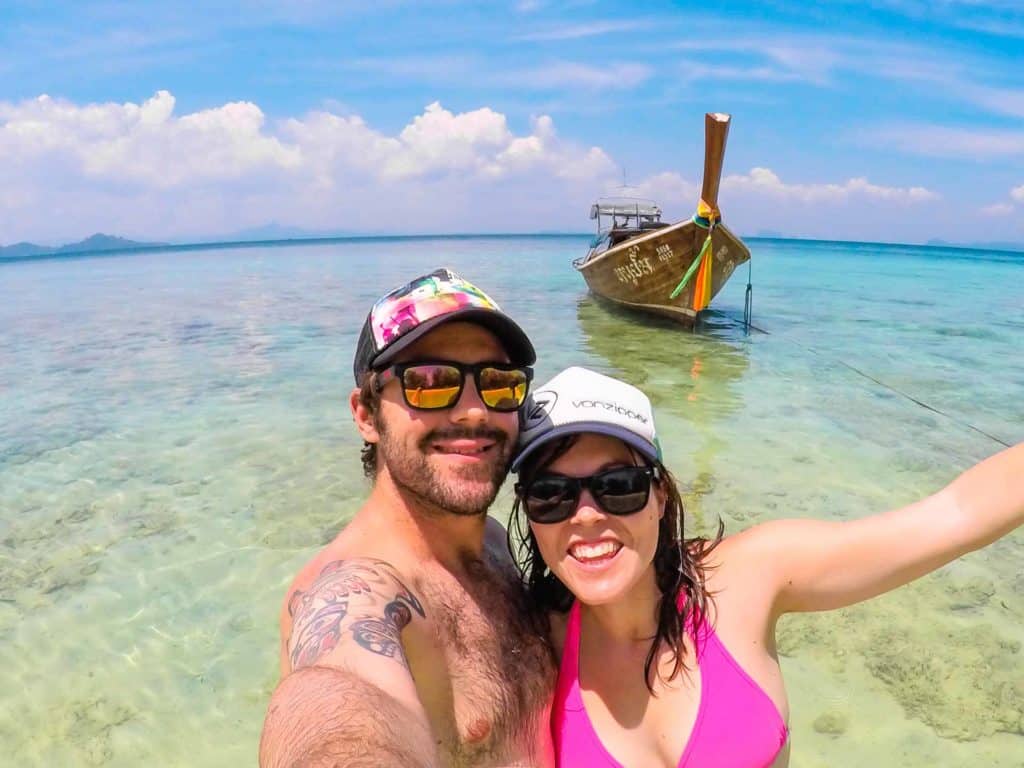Disclaimer: I am a PADI Instructor, so for standards and training how how to become a dive instructor mentioned in the article, I quote PADI.
Living on a beautiful Island somewhere exotic, meeting new people every day, and getting paid to do something you love sounds like an unobtainable dream for most of us.
However, if you have ever taken a dive trip or course somewhere, you have likely found yourself looking at your dive instructor and thinking that they have managed to land a pretty sweet deal.
Table of Contents
Ready for the Leap? How to Become a Dive Instructor!
Whilst it is a well-known fact that you will never become rich if you become a dive instructor, you can’t deny that old saying “find a job you love, and you will never work a day in your life”.
If you have an affinity with the ocean and love all things scuba related, then perhaps this is the ideal job for you.
Check out our post on tips for becoming an open water diver.
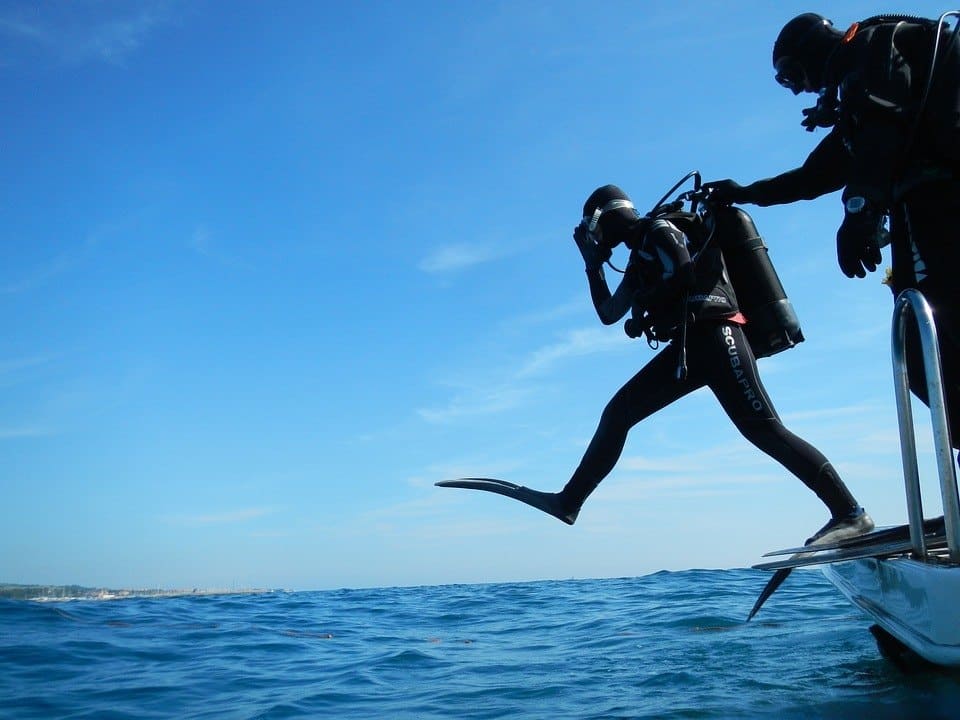
Is It For You?
Whilst on the surface it may look like becoming a dive instructor is an easy job, be aware that it is not just a few hours a day swimming with the fish, and then off to the nearest beach bar for a beer.
Days are long as a dive instructor, with early starts and late finishes.
You are also likely to work a 6-day week, sometimes 7 days if your employer decides it is particularly busy.
Conditions can be brutal – think loading and unloading tanks into boats and cars every day. Now add 40-degree heat and sometimes barely a minute to eat.
Then there is paperwork, and difficult customers, and occasionally comforting panicked or upset divers.
It is important to realise that recreational diving is a lot different to professional diving. When you are the customer, you spend your time looking at the beautiful underwater world around you.
As an instructor, you will spend a lot of time looking at other divers, making sure they don’t do anything stupid, and ensuring everyone gets back to the boat or shore safely with air in their tank.
The job requires an awful lot of patience, as some people get things in an instant, and others it can take days.
You have to be able to be approachable and have the kind of personality that puts people at ease in a completely unfamiliar situation.
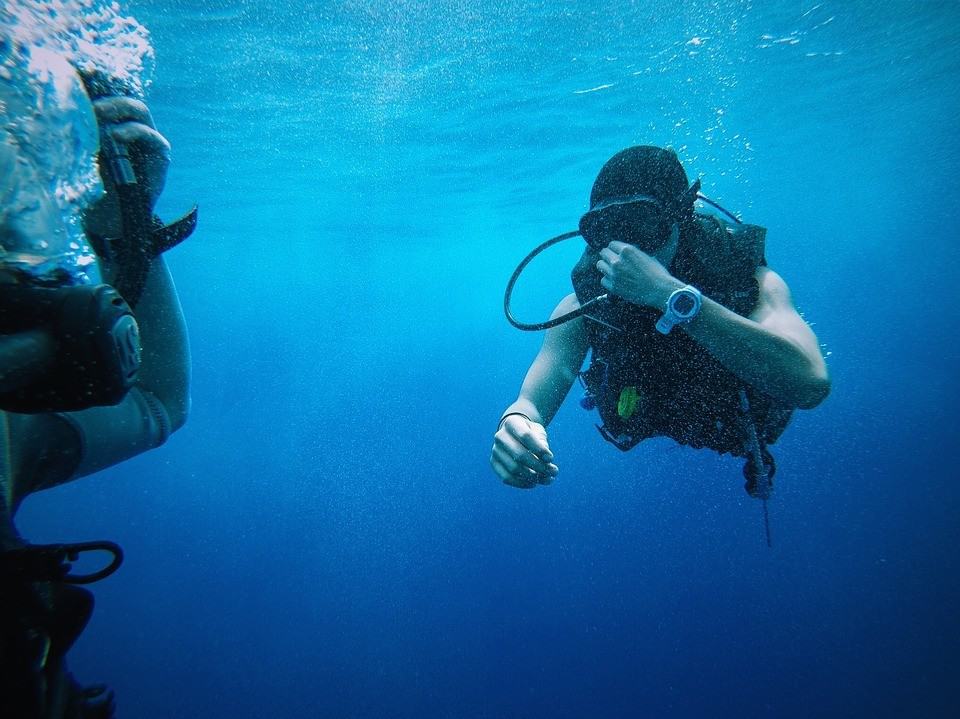
Why Do It Then?
With all the above being said, there is no better feeling than introducing someone to this whole other world.
Whether it be a nervous child, who’s eyes light up with every passing fish, or an older person who is terrified, but diving is on their bucket list.
The feeling of accomplishment you get when you help someone overcome their fears of diving is like no other.
You form bonds with your students, and when they finally get a skill you have been trying to teach them for hours, you feel like a proud parent!
There will also be days where you are guiding experienced divers, and so you get to enjoy the diving and be paid whilst doing it.
No two days are the same, and when you are spending so much time in the water you are bound to have incredible moments and unforgettable encounters with marine life.
You will also make some incredible friends for life from across the globe, with whom you share a passion for the ocean with.
Where To Start?
I am always a little surprised by the amount of people who decide they want to be a dive instructor having never actually been Scuba diving in their life.
If this is you, then I really suggest doing your open water certificate and gaining some practical experience first.
For those who are already divers, get as many dives in as many different environments as you can.
Make sure you log all of your dives, as when you start your professional diving courses you need to show proof of your logged dives.
READ MORE: Check out our guide to the best dive watches if you’re planning on becoming an instructor – it’s an essential piece of kit!
Speak to as many professionals as possible, and network! You may need these contacts in the future.
Begin slowly investing in your own equipment. Don’t just buy everything brand new, in one go.
Try equipment in shops or borrow rental equipment to try. Find out what you like and don’t like.
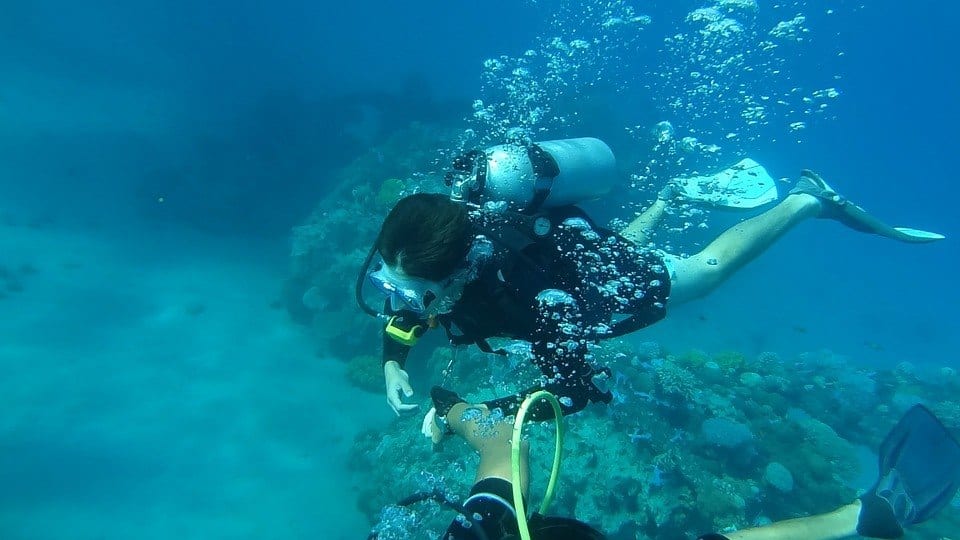
What Courses Do I Need To Pass?
First up is your Open Water Course, which is your very first step into recreational diving and allows you to dive to 18 metres/ 60 feet anywhere in the world.
After this you must take your Advanced Open Water – 5 adventure dives to broaden your diving knowledge.
These must include a deep dive and navigation. The other 3 dives are up to you and could include night diving, search and recovery, wreck dive etc.
With those 2 courses under your belt, you are eligible for the rescue course. Combine this with an Emergency First Response course too.
With these 3 courses and 40 logged dives, you are in fact able to start your Divemaster course, the first step on the professional diving ladder.
Before you do this however I would really suggest getting in as many dives as possible and perhaps taking some specialties.
Just because you have reached the minimum qualifications needed to go professional, doesn’t mean that you should!
Divemaster Course
This is the course where it now becomes less about you and more about other people, and how to look after them in the water.
Most people do this in one of two ways. You can do the divemaster course intensively, in a minimum of around 10 days.
Or you can choose to do an internship, from anywhere between 1 month to 6!
It is entirely up to you how you do the divemaster, but of course the longer it takes you, the more dives you will get, and the more experience in the water you will have when it comes to taking your Instructor Course.
Doing your divemaster course in the area you wish to work as an Instructor in will be really beneficial for you.
During the divemaster you learn how to assist on all courses, guide certified divers, map a dive site, plus a lot of in-depth theory.
There is a lot in this course and it is really the basis for your dive career, so pick a dive centre carefully.
Ask around for recommendations and don’t be lured in by “free” internships – in diving, you usually get what you pay for!
Want to get into professional diving somewhere tropical? Check out our post on becoming a divemaster in Thailand!
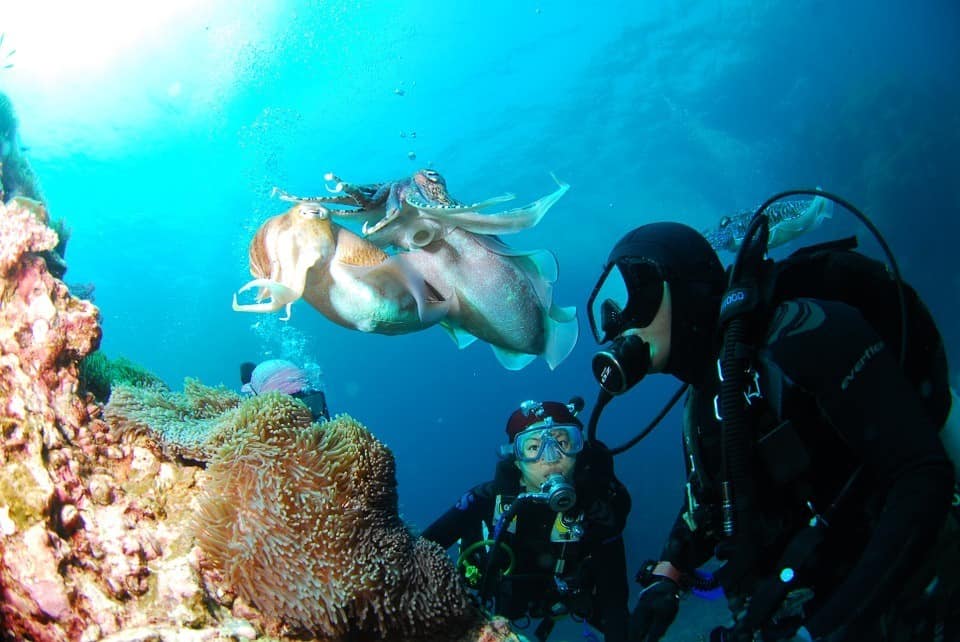
Instructor Development Course
This is the final hurdle that sits between you and your dream job of dive instructor. And it is not so much of a difficult hurdle, but rather a very expensive one.
You are looking at around the $3000 mark for your Instructor Development Course and the Instructor Exam.
The course itself is only around 2 weeks long and doesn’t actually involve much diving. It is a lot of classroom-based work, learning about paperwork, theory, standards and procedures.
There are some pool and open water skill presentations too.
If you have had a thorough and quality divemaster course, then the Instructor development course should not be too difficult.
At the end of the course, an outside examiner from PADI will come to test you.
The Instructor Exam includes demonstrating skills, preparing in water and out of water presentations and a 5-part theory test.
Once completed, you will be presented with a certificate and you are officially an Open Water Scuba Instructor!
Now What?
Now it is time to go and find that perfect lifestyle in your dream destination.
If you have experience diving in certain places this is definitely going to help you land a job there.
The dive industry also loves speakers of multiple languages, so if you are fluent in more than one language make sure you make that very clear to potential employers!
Landing a job in the dive industry is usually about being in the right place at the right time and utilising all those connections you have made along the way!
Good luck and enjoy the bubbles.

